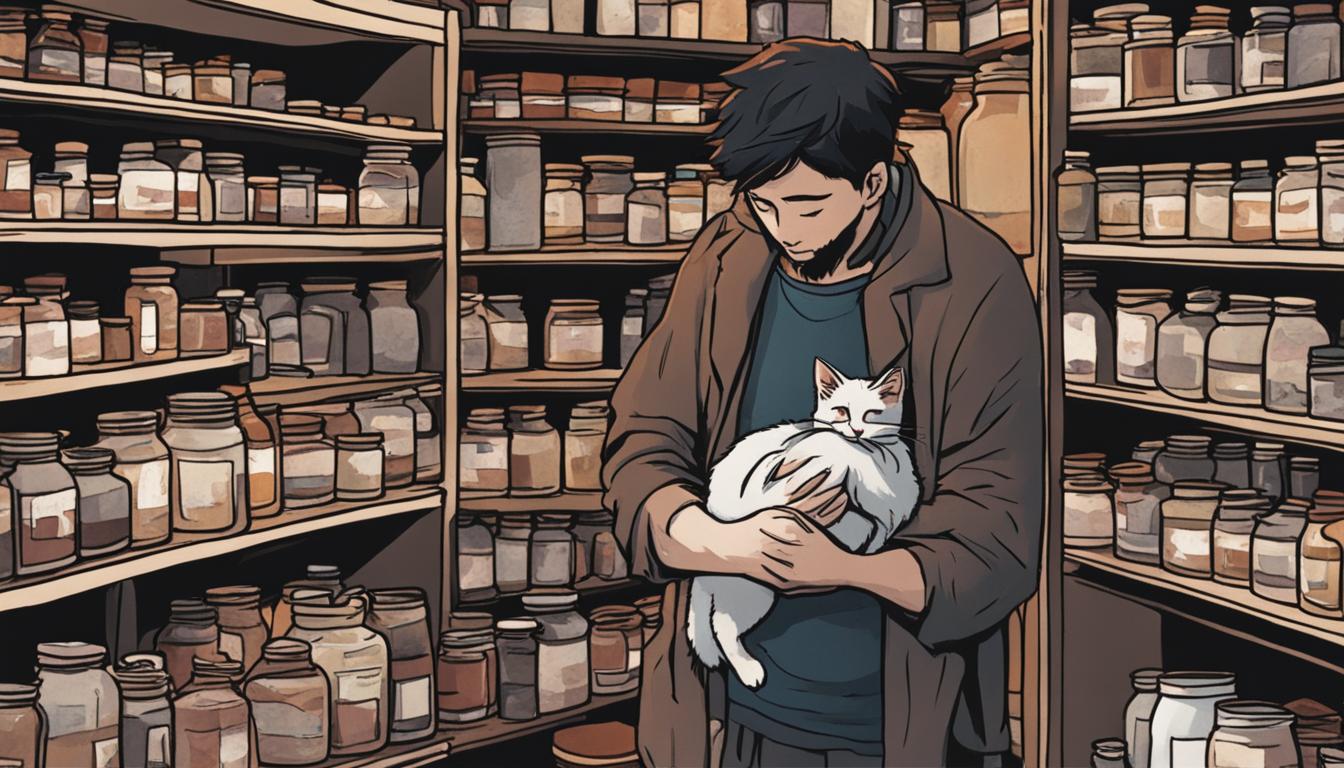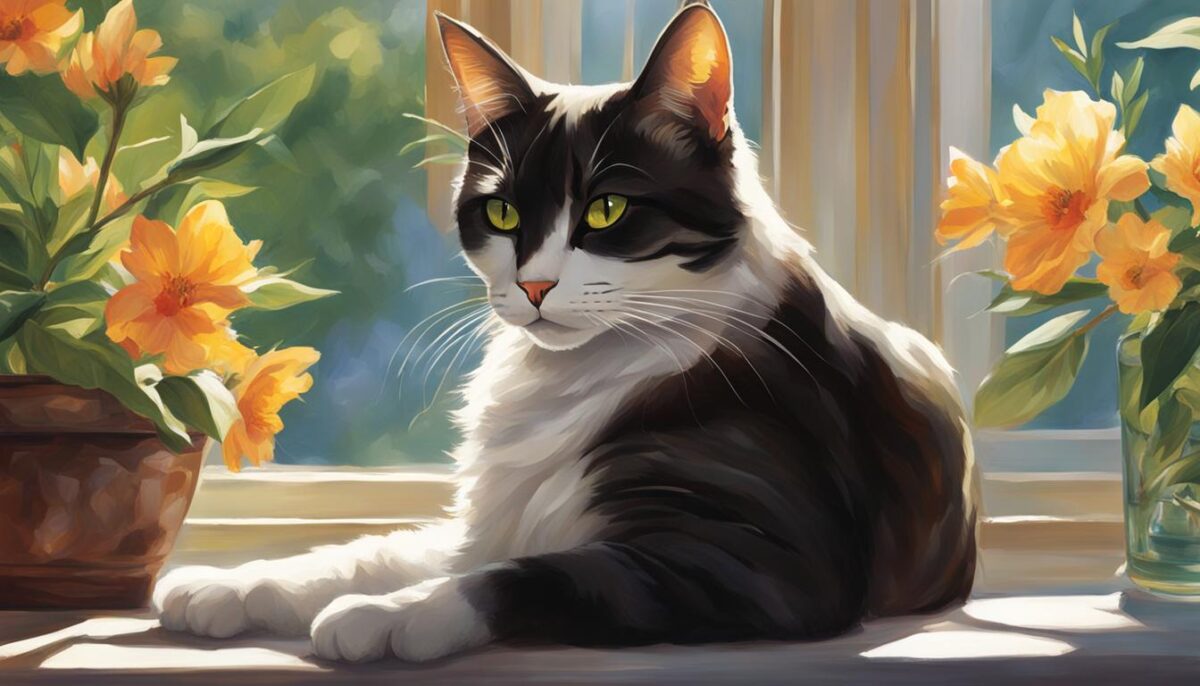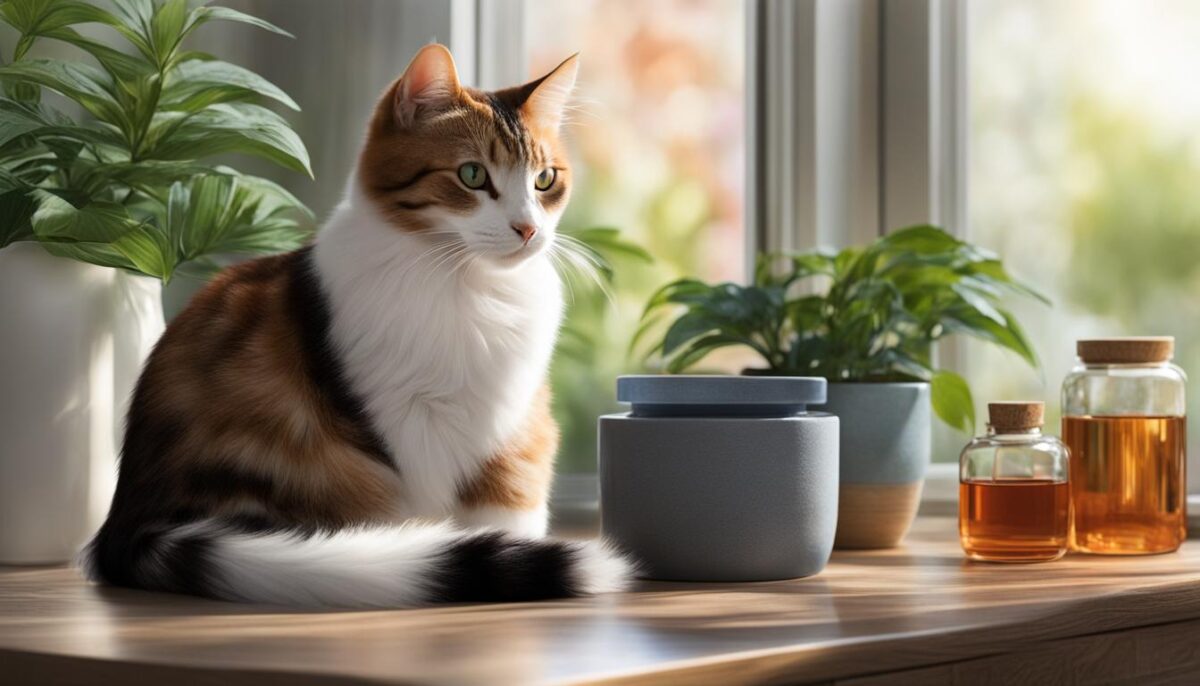Did you know that your cat might be sick even if it looks ok? Cats are good at hiding when they don’t feel well. This helps them in the wild so other animals don’t know they are weak. You might not see signs of sickness in cats until they are really sick. It’s very important to watch for the small ways they might change what they do or how they look. These changes can be signs of cat illnesses.
Vets tell us to take adult cats to check their health two times a year. This helps find feline diseases early. If your cat doesn’t eat for a day or more, has troubles breathing, or if they act very different all of a sudden, you should take them to the vet right away. If your cat’s routine or how they look changes a lot, it means it’s time to see the vet.
Key Takeaways
- Even if your cat looks fine, keep an eye on their health.
- Small changes in how your cat acts or looks can be clues.
- Visiting the vet twice a year can keep your cat healthy.
- Some signs your cat is sick are not eating, hard breathing, and big changes in how they act.
- Always go to the vet if your cat changes a lot in what they do or how they look.
Recognizing Signs Your Cat May Be Unwell
Is your furry friend acting differently? They might be sending you a message that they don’t feel good. Sometimes, it can be hard to tell, but knowing what signs to look for will help you take better care of your cat.
Subtle Behavior Changes as Illness Indicators
Cat behavior changes can be a big hint that your kitty is not feeling well. If they are not playing as much, sleeping more than usual, or hiding in quiet places, these could be signs that you need to keep an eye on them. A sick cat may act very cuddly or they may not want to be touched at all. Changes like these tell us that it’s time to pay attention.
Physical Appearance Alterations
Has your cat’s fur become all messy? Or are they licking one spot so much that it’s gone bald? These feline grooming habits can change because of how they are feeling inside. A normally neat cat with unkempt fur or bald spots might be unwell. It’s like when you feel sick and don’t want to get out of bed to clean up—that’s how they feel, too!
Eating and Drinking Patterns
Another clue to your cat’s health is the way they eat and drink. Cat appetite changes and cat drinking habits are important to notice. Eating too much or too little can both be worrisome. So can drinking a lot more water than they used to. If you see that their eating or drinking is not like before, it might be time for a check-up.
Knowing these signs helps you take better care of your cat. If anything feels off, a visit to the vet is a smart move. Keep loving and watching your cat—they count on you to help them stay happy and healthy!
| Behavior/Symptom | Normal | Potentially Worrisome |
|---|---|---|
| Grooming | Clean, neat fur | Messy fur or bald spots |
| Appetite | Eating regular meals | Not eating or eating too much |
| Drinking | Regular drinking habits | Drinking a lot more or less |
| Behavior | Playful and active | Too quiet or hides more |
Understanding Feline Health Issues
As your fluffy friend grows older, they start to face more feline health problems. Just like people, cats can get different kinds of cat diseases. It’s not always easy to spot when they’re not feeling good because cats are super good at hiding when they’re sick. You have to be like a detective and notice the small clues they give. A sick cat might not jump as high as before or might spend more time sleeping. Their purring motor might not run as much, and they might not want to play with their favorite toy. It’s a big deal to take care of them and make sure they see their vet often, especially since they can have chronic cat illnesses that don’t go away quickly.
Why is it so important to keep an eye on your cat’s health? Well, if you can tell early when your cat isn’t feeling well, you can help them get better before it turns into a big problem. Taking your cat for regular check-ups with their feline vet care team is like giving your cat a shield to fight off sickness. The vet can find little problems that you might not see and help keep your cat as happy and playful as ever.
The table below shows some common issues your cat might have and what signs to look for. This way, you can be ready to help your buddy stay healthy!
| Health Issue | What You Might See | Why It’s Serious |
|---|---|---|
| Respiratory Infections | Sneezing, coughing, runny nose | Can make it hard for your cat to breathe and play |
| Urinary Tract Diseases | Going to the litter box a lot, pain when peeing | Can hurt and make your cat sad and uncomfortable |
| Thyroid Imbalances | Super hungry but losing weight, extra active | Can mess with your cat’s energy and heart |
| Kidney Conditions | Drinking lots of water, not using the litter box much | Can make your cat tired and not feel like eating |
To make things a bit clearer, here is a picture of a cat that is feeling just fine. Cats who are sick may not look as bright-eyed or playful. It’s super important to know your cat’s normal behavior so you can tell when something doesn’t look right.
Remember, you know your cat the best. If you think something’s not right, it’s always a good idea to call the vet. They are there to make sure your cat gets the best care and stays happy and healthy for a long, long time!
Can Cats Get Sick: Common Cat Diseases and Conditions
Cats are just like people – they can get sick too. Some illnesses are more common in cats and knowing about them can help you keep your furry friend healthy. Let’s learn about some of these diseases and how to help our cats if they get these problems.
Feline Lower Urinary Tract Disease (FLUTD)
When your cat has cat FLUTD, it means they have pain and trouble when they pee. They might even have blood in their urine. Sometimes they can get a nasty block that stops them from peeing, and that can be very dangerous. It’s important to watch for these signs so you can help them fast.
Upper Respiratory Infections (URI)
If your cat starts sneezing a lot or has a runny nose, it might have feline URI symptoms. It works a lot like a cold in humans, but it’s important to keep our cats safe. Some shots can help make it not so bad, but even with shots, cats can still catch these germs.
Hyperthyroidism and Its Impact
Another sickness cats get is called hyperthyroidism. If your cat is eating all the time but seems to be losing weight, it could be a sign. The good news is that there is cat hyperthyroidism treatment available. This can help your cat feel better and live a happy life.
Chronic Kidney Disease (CKD)
Sometimes, cats can have problems with their kidneys, and that’s called CKD. It can be tricky to notice because the signs don’t show up until the kidneys are having a lot of troubles. That’s why going to the vet even when your cat seems okay is a good idea. They can help with feline CKD management to keep your cat purring.
| Disease | Symptoms to Watch For | How to Help Your Cat |
|---|---|---|
| FLUTD | Painful peeing, blood in urine | Quick visit to the vet, special diet |
| URI | Sneezing, runny nose | Keep them warm, maybe medicine |
| Hyperthyroidism | Always hungry, losing weight | Medicine and check-ups |
| CKD | Not much at first, then drinking a lot, peeing a lot | Special food, lots of water, lots of love |
Remember, taking care of your cat means paying attention to how they act. Getting them help early can mean they get better faster!
Caring for a Sick Cat: Tips for Pet Owners
When your pet cat isn’t feeling well, it’s important for you to take extra good care of them. If you think your cat may be sick, you should act fast. First, make sure they have a cozy spot to relax in and always have fresh water to drink. Watch how they act, what they eat, how much they drink, and how they use the litter box. Changes in these things can tell you a lot about your cat’s health.
If your vet gives medicine or special food for your cat, you have to follow what the vet says very closely. You want to keep your house very calm for your kitty and give them lots of love and soft pets. Talking with your vet often is also very important. This way, you can know if your cat’s health is getting better and if you need to do anything different to help them.
Taking care of a cat that’s not feeling well is a big job, but it’s something you can do. Remember, if you help your cat when they first start feeling sick, they have a better chance of getting better fast. You are a big part in making sure your cat stays happy and healthy.
FAQ
What are common signs of sickness in cats?
Common signs of sickness in cats include subtle behavior changes, physical appearance alterations, variations in eating and drinking patterns, and shifts in grooming habits. It’s essential to watch for these signs as they can indicate underlying feline health issues.
How can I tell if my cat’s behavior changes are due to illness?
Illness indicators in cat behavior may include increased withdrawal or clinginess, alterations in vocalization, changes in energy levels like lethargy or restlessness, and variations in their usual routine. Monitoring these changes can be critical for early detection of health problems.
What physical appearance changes should alert me to potential feline diseases?
Physical appearance changes that may signal health issues in cats include a decrease in grooming that leads to a messy coat, excessive grooming which may cause bald spots, noticeable weight loss or gain, and any signs of dehydration or abnormalities in the eyes.
Why is my cat changing its eating and drinking habits?
Changes in eating and drinking habits can be a symptom of a variety of feline health problems. A decrease in appetite or increased thirst could indicate dental, liver, or kidney issues, while an increase in appetite alongside weight loss might be a sign of hyperthyroidism. It’s important to consult a veterinarian if you notice such changes.
What should I do if my cat exhibits signs of a respiratory infection?
If you suspect your cat has a respiratory infection, watch for feline URI symptoms like sneezing, nasal discharge, and eye discharge. Consult your vet for a proper diagnosis and to discuss if vaccinations are appropriate for your cat’s situation.
How can I manage my cat’s chronic kidney disease (CKD)?
Feline CKD management involves regular vet check-ups to monitor the disease’s progression, dietary modifications, possible medication, and ensuring your cat has continuous access to fresh water. Early detection through vet screenings can be crucial for managing this chronic condition.
Can indoor cats develop the same health issues as outdoor cats?
Yes, indoor cats can develop many of the same health issues as outdoor cats, including chronic illnesses, dental issues, and even obesity from a lack of exercise. Regular vet visits for wellness examinations are important for detecting potential health problems, whether your cat goes outdoors or not.
How often should I take my cat to the vet?
Veterinarians recommend twice-yearly wellness examinations for adult cats to catch subtle signs of illness early. However, the frequency may vary depending on your cat’s age, health conditions, and any existing chronic illnesses that require more frequent monitoring.
When is immediate veterinary care necessary for my cat?
Immediate veterinary care is necessary if your cat stops eating for more than 24 hours, has difficulty breathing, shows severe lethargy or sudden changes in behavior or physical condition, or has urinary tract issues such as difficulty urinating or blood in the urine.
What are some tips for caring for a sick cat?
When caring for a sick cat, keep them comfortable, ensure they have easy access to water, monitor their food intake, hygiene, and litter box habits, and manage stress levels by providing a quiet environment. Follow any treatment plans prescribed by your vet, including medication administration and dietary changes.


